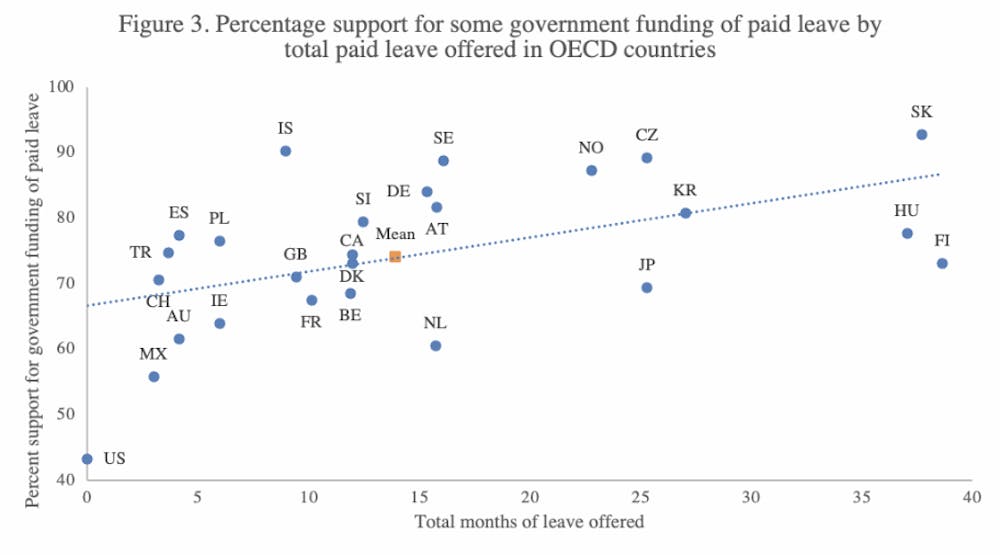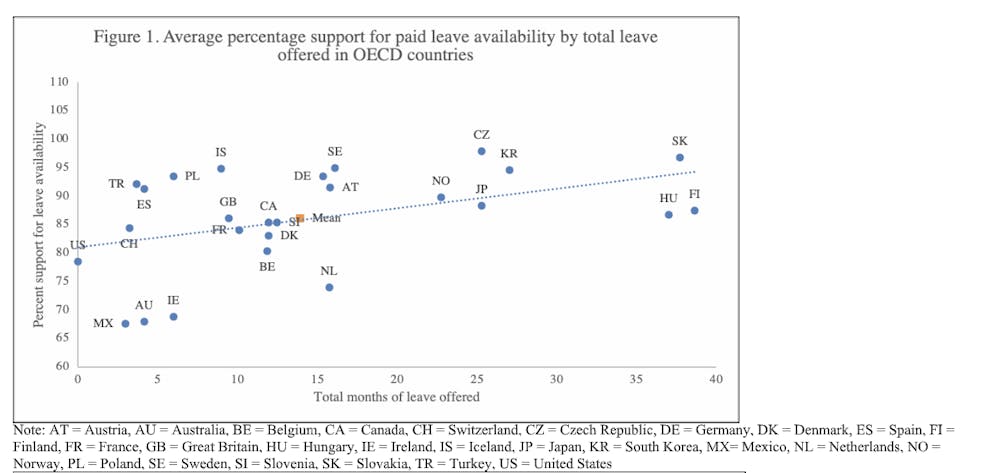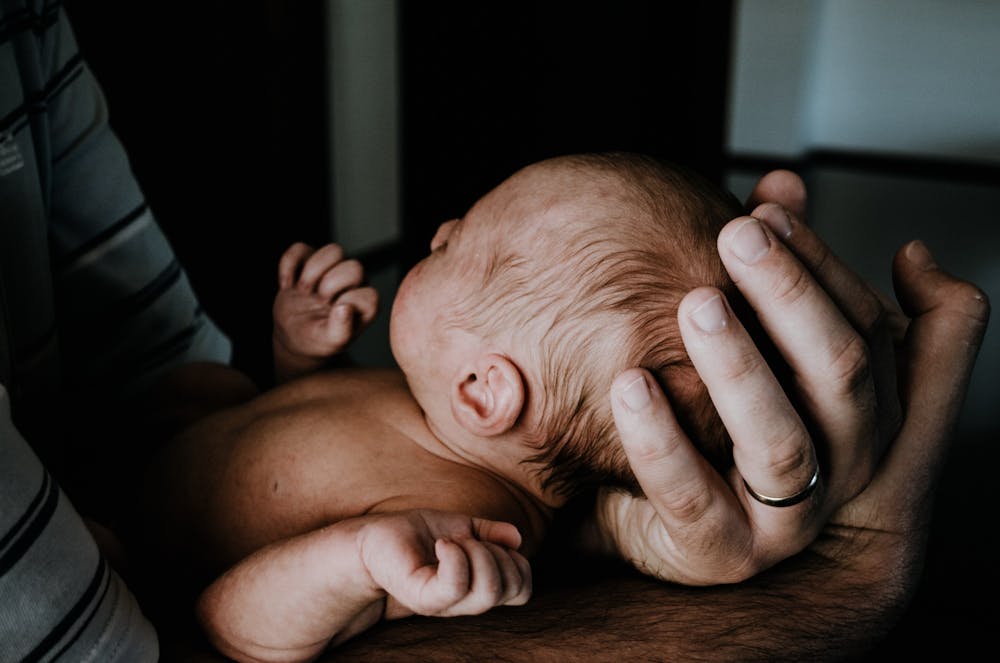To read more studies from Professor of Sociology Richard Petts, visit his website at www.richardpetts.com
After the COVID-19 pandemic required many people to work from home with their children eLearning, childcare and paid parental leave became a hot topic of discussion.
The Comprehensive Paid Leave for Federal Employees Act — a bill introduced to the U.S. House of Representatives in January 2021 — proposes to implement a 12-week paid leave for federal employees to care for spouses and children, as well as extended illnesses and other conditions not covered by existing paid leave programs already.
Richard Petts, professor of sociology at Ball State, and his research partners — Chris Knoester, Ohio State University associate professor of sociology, and Ohio State Ph.D. candidate Qi (Amelia) Li — have shown overwhelming support for paid paternity leave in recent studies. More than 86 percent of participants said they supported paid paternity leave, but there were varying levels of support for government funding of it.

This graph shows the average percent support for paid paternity leave for participants surveyed across 26 wealthy countries. The study found an average of 86 percent of participants were in favor of paid paternity leave. Chris Knoester, Graph Provided
Their study, which was published in the International Journal of Comparative Sociology June 23, revealed the vast majority of people surveyed across 20 countries were in favor of paid paternity leave, supporting a 13-month paid leave on average. The average maternity leave taken in the United States is 10 weeks. Despite a majority of Americans supporting paid parental leave, only six states and Washington D.C. have active paid family leave programs. Nine other states have passed family leave programs, but none have gone into effect yet.
“I thought, ‘Why is it that we don't have better support for maternity or paternity leave-taking in the U.S.?’ Obviously, maternity leave-taking seems essential and we're finding that paternity leave-taking seems to be great for all family members,” Knoester said via email. “Could it be that people in the U.S. don't really want it? Or, is it a failure of implementing the will of the people? What are people's attitudes about the provision of leave offerings for parents anyway? Also, how do they compare with the attitudes of other people in different countries who have widespread and generous leave offerings?”
Knoester sought to answer some of these questions in the study, finding most people support longer leaves than average leave offerings in their native countries.

This graph details the percentage support for some level of government funding for paid paternity leave. The international study surveyed more than 35,000 people. Chris Knoester, Graph Provided
While many private companies offer some form of paid leave, executives tend to pressure men on paternity leave to return to work sooner, according to Very Well Health. Because every state has some form of at-will employment, where someone can be fired at any time for any reason provided it is not discriminatory on account of race, religion or gender, this pressure can worry new parents who need to provide for children.
“I got a few weeks off when my daughter was born, but every day, I’d hear from the office about how much work was piling up in my absence,” said Joseph Garcia, a Muncie resident. “Finally, I felt guilted into going back before I really had to. I’m not mad at anyone, but I am upset because I see how much closer my daughter is to my wife who got to spend more than two months home with her.”
Petts said he found in the study paid paternity leave supports family bonding and there is a correlation between families who take paternity leave and lower divorce rates.
“These studies show that when fathers take time off work after the birth of a child, they are more involved in their children's lives, mothers report receiving more support from fathers, mothers are more satisfied in their relationships with fathers, parents are less likely to get divorced and children report having stronger relationships with their fathers when they are older,” Petts said via email. “This work, combined with evidence from other countries, suggests that there are numerous benefits to paid paternity leave.”
Contact Sam Shipe with comments at scshipe@bsu.edu or on Twitter @JournalistSam.





